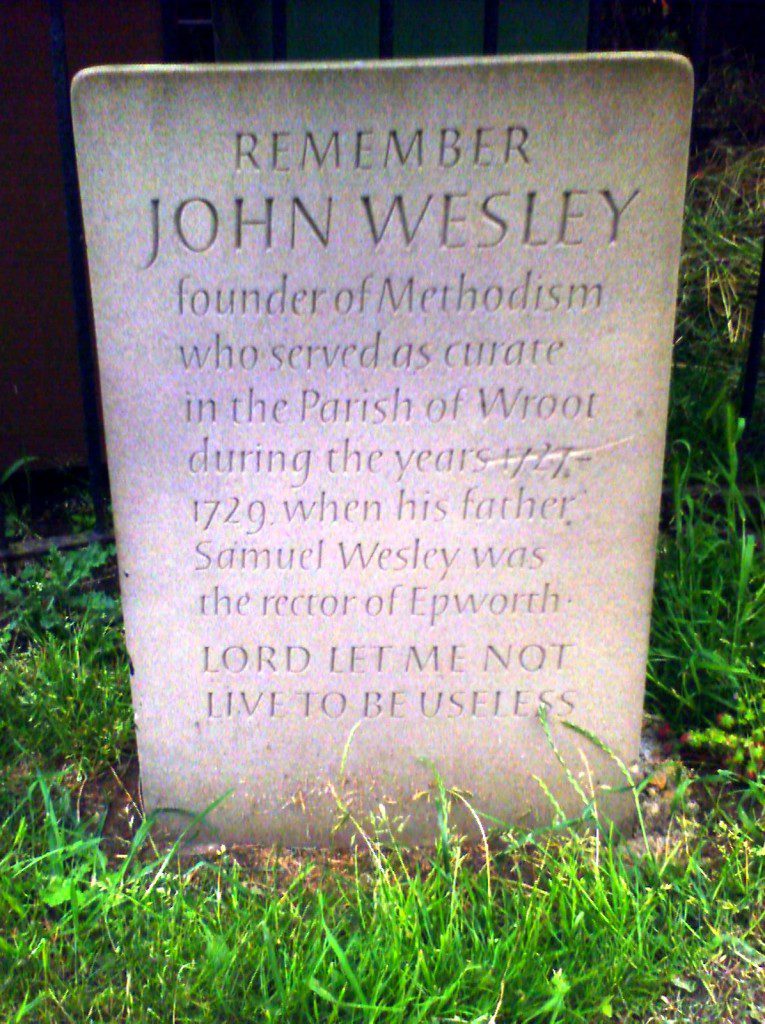 We’re returning to our occasional series of posts on work and vocation (linked at the bottom of this post) in Christian history by Faith and Work Channel senior editor and Christian History magazine senior editor Chris Armstrong. Enjoy!
We’re returning to our occasional series of posts on work and vocation (linked at the bottom of this post) in Christian history by Faith and Work Channel senior editor and Christian History magazine senior editor Chris Armstrong. Enjoy!
The contemplative vs. the active life
A key moment in Christian thought about economic work came in the 6th-century papacy of Gregory the Great. Gregory was a monk, and remained one during his papacy—the first pope to do so. He had been taught to value the contemplative life more highly than the active life. He was devastated when called out of his monastery and into the flood of administrative duties he had to perform as pope. His ensuing spiritual crisis led him to a view that the active life of service to others was not indeed an unwelcome and spiritually damaging distraction from the contemplative. Rather, he saw that in order to become truly spiritual, one must move not only away from the distractions of the flesh to reach the spirit, but also back from the heights of the spiritual life to the concerns of bodily life.
For Gregory the active life is the life of service to others (which is what all work is still ultimately about). So it is inherently important and godly. But second, he understood that our work lives are a mess – as is the entire economic realm. It is heir to all the pain and frustration that came to us by the Fall, which cursed all our work with thistles. So in the midst of the service to others that we do in our work, every one of us encounters the intractable sinfulness of humanity. At work not only the sins of others, but our own sins are revealed, and we realize every day that we need the power of God in order to get anywhere in dealing with other human beings.
So Gregory concluded that one needed, yes, times of contemplation, but also times of action, both in order to love the neighbor and fulfill the Matthew 25 mandate and also to drive us back to prayer, where we bring those frustrations and the awa2reness of our own sinfulness back to the Lord. So economic work, properly understood, becomes for us a sanctifying thing, as iron sharpens iron. It drives us to our knees, making our times of prayer all the more transforming.
Gregory, far from indulging “the Catholic distortion,” instead taught that the spiritual and material dimensions of our lives strengthen each other in a never-ending cycle: the contemplative life equipping us for the active life, and the active life grounding us in acts of love to our neighbors, to keep us from floating off into spiritual pride and irrelevance. Now he saw those who lived the active life of service, even through the most humble and menial work, as better equipped to experience the contemplative life than those who absorbed all their hours in spiritual pursuits.
All of us, whether we find ourselves in a cloister or the priesthood or the workaday world, can at times enjoy blessed contemplation. And when we do, we must never stay there: our souls and our effectiveness both depend on serving others too. Thus, though Gregory still valued the monastic life highly, he confessed that a married cleaning woman might attain to greater spiritual heights than a cloistered monk. What an amazingly counter-cultural thing for a monk pope to say!
In the Middle Ages, Benedict made manual labor the duty of every monk. Monastic houses often served guests, and Benedict insisted in his Rule that each guest be served as the monks would serve Christ himself. Especially after Bernard of Clairvaux’s organization of the Cistercian order in the early 12th century, some orders of monks or nuns became schools and orphanages, and most both practiced and innovated in various kinds of food production, including brewing and wine-making, which became quite profitable. Indeed, as Stackhouse tells us, the monastic houses “began to shape the whole civilization of the West.” Which is exactly what economic work still does today.
There is one more layer of the onion here: Gregory and Benedict, who were contemporaries, both also taught that every part of creation and every sphere of human experience bears sacramental significance. In other words, the material world is filled with God’s presence, and God speaks to us in everything we do (the first word of Benedict’s Rule is “Listen!”). Think of how, if we really believed this, it would transform how we interact with the realities of economic systems and conditions.
Work as means of sanctification
Two medieval Christians who really “got” this sacramental view of economic work were the fourteenth-century German Dominican friars Meister Eckhart (c. 1260 – c. 1327) and Johann Tauler (c. 1300 –1361). Along with other German mystics of their day, Eckhart and Tauler affirmed a non-monastic call of God. For them, not just monastics but ordinary working folk could achieve the highest title of traditional monasticism, “friend of God.” They kept alive Gregory’s understanding of the symbiotic relationship between action and contemplation, acknowledging that at times external work is more useful than internal.
For example, Eckhart says, “If one were in [a state of mystical] ecstasy, even if it were as high as that of Paul, and knew that beside him there was an infirm man who needed a bowl of soup from him, it would be better for him to abandon his ecstasy and serve the needy man.” And this is not just a momentary concession. “We are brought forth into time,” wrote Eckhardt, “in order that our sensible worldly occupations may lead us nearer and make us like unto God.” Thus “One can gather nettles and still stand in union with God.”
Tauler criticized those who believed the work of the businessperson who “knows all the secrets of commerce” to be a spiritual obstacle: “It is certainly not God who has put this obstacle.” Rather, the working life of active service is simply a different way of serving and knowing God. This work, too, is a calling, and the person who obeys it “with singleness of purpose” is truly on the way to God. And so the door to “calling” was opened, centuries before Luther, to the common working person.
So despite the early appropriation of the word “vocation” by clergy and monastics, the spiritual life and the ordinary working life were never as strictly divided as we might have thought.
Originally published at Grateful to the Dead.
Previous posts in this series:
- Getting the beginning and end of the story right
- We were made to work
- Jesus the incarnate worker God’
- A brass-tacks, real-world theology of work and vocation
- Early Christianity and everyday work
Image: Meister Eckhart, © Raimond Spekking / CC BY-SA 4.0 (via Wikimedia Commons)












